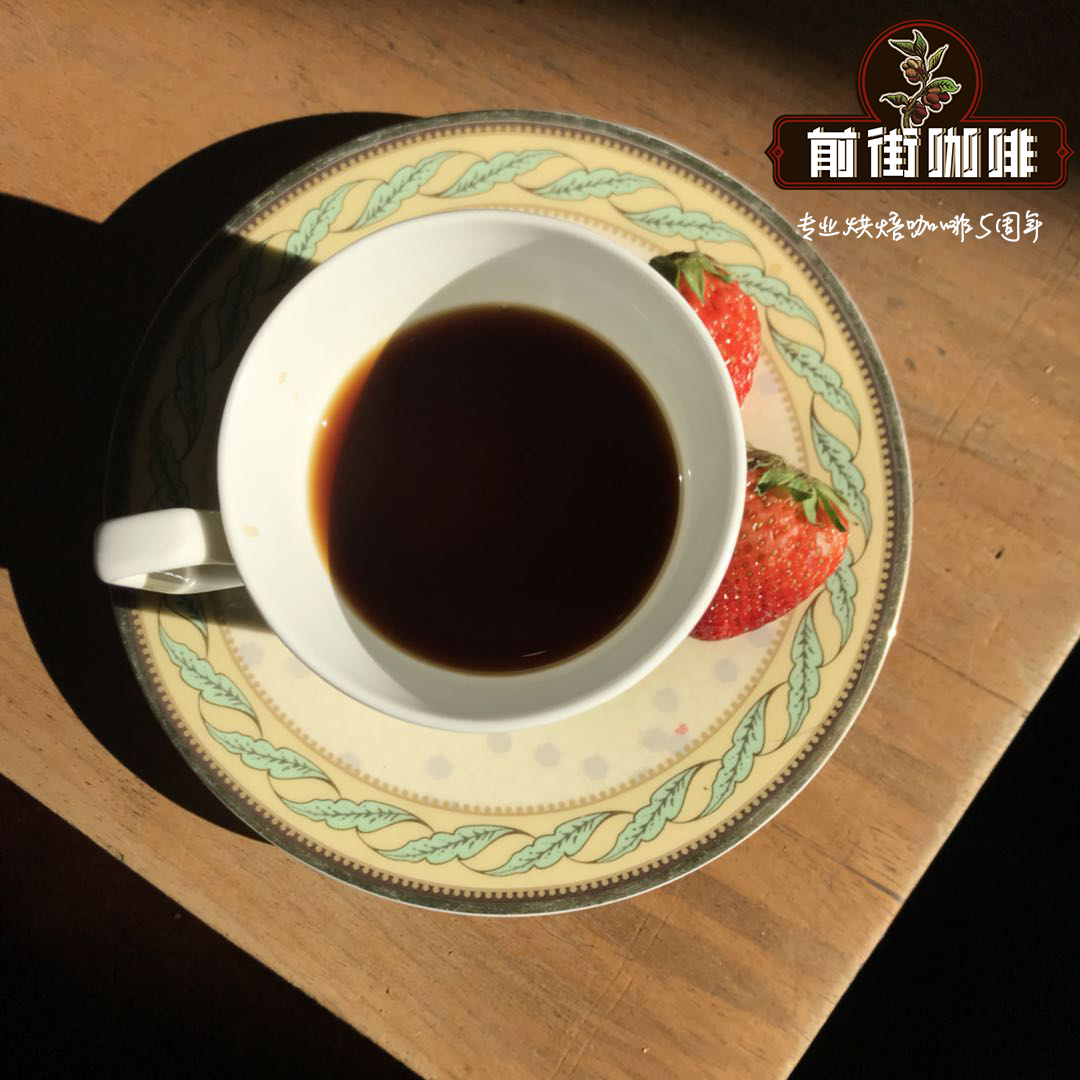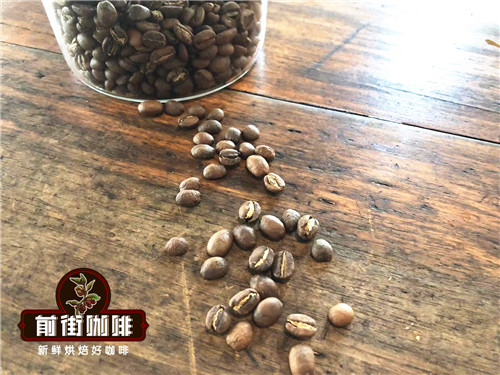Flavor and flavor of bourbon coffee beans from Las Cruces processing plant on Marina Cumbre farm in El Salvador

Professional coffee knowledge exchange more coffee bean information please follow the coffee workshop (Wechat official account cafe_style)
What is the flavor and taste of bourbon coffee beans from the Las Cruces processing plant on Marina Cumbre Farm in El Salvador? How to make it by hand?
Marina Cumbre is a farm that is part of the project and works with the Jasal family. It is owned by producer Alejandro Duarte. Because he doesn't have his own benefit, the coffee is handled in Beneficio Las Cruces. Alejandro pays great attention to forest conservation, and a large part of the farm is the forest environment, with native trees and plants and animals. The farm is located at an altitude of 1550 meters above sea level and has been performing well for many years. It covers an area of 70 hectares and is famous for its sweet, delicate and classic Salvadoran coffee. The variety planted is a mixture of Bourbons and Pacamara. Producers are innovative in processing and agriculture. They separate everything according to the number of days selected and carry out different processes, fermentation and drying techniques according to capacity and potential. In this case, it is mechanically debonded before soaking in clean water overnight, and then carefully dried on the patio. They manage the drying time by setting up layers and piling up coffee.
The coffee is processed in the Las Cruces factory owned by the Salaverria family, but the farm is owned by Alejandro Duarte. Marina Cumbre is located at the highest point of Cordillera El Balsamo in El Salvador's central mountain range. Coffee farms are surrounded by Balsamo trees, which were built and established in El Salvador many years ago. For the producer Mr. Alejandro Duarte, environmental protection is a very important task, and the farm retains the native / natural forest in the middle of the farm. This natural forest in many native Balza trees is home to many species and provides ideal microclimate and shade for coffee cultivation. On the farm, you can also see a water reserve, which also provides water for the surrounding communities and schools.
The farm is part of a project by Salvadoran producer Jose Antonio Salaverria and his two sons, Andres Salaverria and young Jose Antonio Salaverria. Coffee cultivation on the farm began in 1890, and according to the family, the original seeds and mother plants of the property were imported from Antigua Guatemala. Coffee is divided into small to medium-sized batches according to different parts of the farm and coffee varieties. Currently, the farm grows varieties such as Bourbon Elite,Pacas and Pacamara, but the farm is also involved in Procafe projects to grow different varieties. As a result, they have native coffee trees, natural mutants and hybrids from all over the world. Los Pirineos Farm was one of the pioneers in El Salvador to build its own micro-coffee factory. Producers are still experimenting with processing and drying methods
Coffee from different farms they owe or cooperate with is processed in their central factory, Las Cruces. They bought Beneficio Las Cruses in 1990 and have made many improvements since then. Much of their success is based on their enthusiasm for coffee. They are hard-working, pragmatic, patient, quality-oriented and sustainable. They also succeeded in building a great team. Jose Antonio believes that workers and teams are the biggest assets.
There are three different main coffee producing areas around Mount Santa Ana in El Salvador. This is part of a long-term project. We reserve most of the coffee under a three-year contract. We not only separate farms and blocks (tablones), but also try to optimize quality by changing the process to prepare different value-added products. It is basically done by changing the preparation of coffee, which is selected by cubes and entered the pulper by fermentation, soaking and drying.
La Cumbre is a specific block of Los Pirineos Farm, located at some of the highest elevations of 1485 meters. It's an old bourbon variety. The climate and growing conditions are very good, and in this area, it will get cold when the altitude is higher. The cold night slows the ripening and the taste develops very well. Gilberto is the producer we've been working with for years, and he's always interested in playing with different preparations and craftsmanship. The coffee is picked when it is overripe, mechanically degummed and then carefully dried on an elevated bed in the sun. It takes about 15 days to dry. They manage the drying time by setting up layers and piling up coffee.
Treatment: most of the coffee is processed according to the experiments and adjustments we have done on the wet mill. They are using an eco-pulper called Jotagallo for about 80 per cent of mechanical demoulding. Their standard procedure is to send the parchment from the shredder directly to the courtyard for drying. We decided to soak most of the coffee we bought overnight for 10 hours after pulping because we believed it would make the coffee more elegant. We feel that the cup is brighter and cleaner, which seems to increase the shelf life and make the acidity distribution clearer. Cups tend to be more closed at first, but they usually open a lot a few months after picking. We tend to prefer these, even though some routine processes and dried honey / paste natural products are preferred by others. The coffee is then dried on a clay terrace for up to 15 days, or on a drying bed in the sun or in the shade. They have also conducted a large number of experiments, including last year's different fermentation methods, natural and honey, drying in balconies, African beds, shade and sunlight, and will follow next year.
Varieties: mainly bourbon, as well as Catuai,Pacamara and some rare varieties
General flavor characteristics: overall, these coffees taste like the great classic El Salvador. Sweet cherry, red berries, soft and rich, good taste and strength. They are easy to use as espresso, but they are also delicious and easy to drink. It's just good, very easy to like coffee. Really balanced, pleasant and solid. Apple aromas, cherry and banana aromas, sweet and silky texture, red berries, plums, drupes, flowers, dried fruits, cocoa and hazelnuts
La Cumbre coffee is grown between 1500 and 1600 meters, about 200m taller than El Manzano. Compared with the quality of the already amazing low-real estate coffee, it has a more obvious fruity flavor and gets a higher grade in cupping!
La Cumbre is an Arabica coffee, bourbon variety, harvested from the end of December to mid-February. These beans are dried on the terrace. Analyze each batch of coffee in the laboratory and put it into a cup.
Qianjie recommended cooking:
Filter cup: Hario V60
Water temperature: 90 degrees
Degree of grinding: small Fuji degree of grinding 4
Cooking methods: the ratio of water to powder is 1:15, 15g powder, the first injection of 25g water, 25 s steaming, the second injection to 120g water cut off, waiting for the powder bed water to half and then water injection, slow water injection until 225g water, extraction time about 2:00
Analysis: using three-stage brewing to clarify the flavor of the front, middle and back of the coffee. Because the V60 has many ribs and the drainage speed is faster, when the water is cut off, it can prolong the extraction time and better extract the nut and chocolate flavor of the tail section.
Flavor: the level is changeable, the whole is clean, the taste is thin, the finish is long-lasting caramel sweet, there will be a hint of bitterness.
Important Notice :
前街咖啡 FrontStreet Coffee has moved to new addredd:
FrontStreet Coffee Address: 315,Donghua East Road,GuangZhou
Tel:020 38364473
- Prev

What is the flavor and characteristics of SHB Rosa Coffee beans from El Manzano Farm in El Salvador? El Manzan
Professional coffee knowledge exchange more coffee bean information please follow the coffee workshop (Wechat official account cafe_style) El Salvador El Manzano farm SHB rosy summer coffee beans flavor and characteristics? The planting story of El Manzano Farm? This strictly productive plantation (SHG) was established by Cornelio Lemus in 1872 and is located in the western part of the country in the city of Las Cruces.
- Next

Flavor characteristics of washed Yega Chevy Coffee suggestion on the proportion of brewing temperature of hand-washed Yejia Chevy Coffee beans
Professional coffee knowledge exchange more coffee bean information please follow the coffee workshop (Wechat official account cafe_style) Yega Xuefi (Yirgacheffe) in the Gedeo region of southern Ethiopia, the jurisdiction of this area is more well-known are Yega Xuefei and Kirchell (K.
Related
- Detailed explanation of Jadeite planting Land in Panamanian Jadeite Manor introduction to the grading system of Jadeite competitive bidding, Red bid, Green bid and Rose Summer
- Story of Coffee planting in Brenka region of Costa Rica Stonehenge Manor anaerobic heavy honey treatment of flavor mouth
- What's on the barrel of Blue Mountain Coffee beans?
- Can American coffee also pull flowers? How to use hot American style to pull out a good-looking pattern?
- Can you make a cold extract with coffee beans? What is the right proportion for cold-extracted coffee formula?
- Indonesian PWN Gold Mandrine Coffee Origin Features Flavor How to Chong? Mandolin coffee is American.
- A brief introduction to the flavor characteristics of Brazilian yellow bourbon coffee beans
- What is the effect of different water quality on the flavor of cold-extracted coffee? What kind of water is best for brewing coffee?
- Why do you think of Rose Summer whenever you mention Panamanian coffee?
- Introduction to the characteristics of authentic blue mountain coffee bean producing areas? What is the CIB Coffee Authority in Jamaica?

